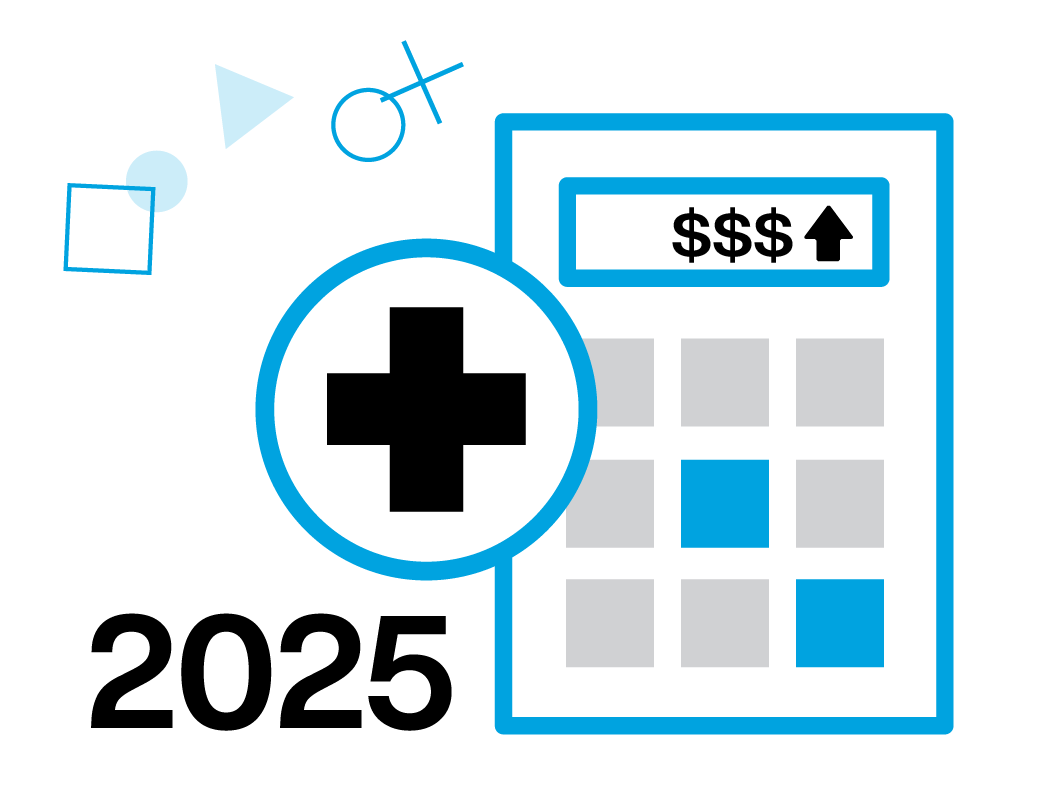Recent data issued by the Kaiser Family Foundation (KFF) indicates the average cost of healthcare premiums sold on ACA exchanges will increase by 7% in 2025.
This is concerning news for Americans already grappling with a rising cost of living. The recent nomination of Kamala Harris as the new Democratic nominee, the approaching November election, and now the news of rising premiums, have all put healthcare back in the spotlight.
But what exactly is driving these cost increases, and how will they impact healthcare moving forward?
The Drivers Behind Increasing ACA Premiums
Many healthcare insurers explain that the increase in premiums stems from healthcare workforce shortages, which have hindered the industry since COVID-19.
A recent report issued by Definitive Healthcare finds that “one in five healthcare workers has left the industry, and nearly 50% plan to quit within the next two years.” With staffing challenges affecting already burnt-out workforces, the costs for healthcare services and procedures have increased as a result.
Moreover, many hospital systems have begun consolidating across the country, which research by the KFF says leads to increased costs. Consolidation allows hospital systems to operate more efficiently and allows smaller providers to keep their doors open. However, this process reduces competition and subsequently lets hospitals dictate their service prices.
To make a dire situation worse, general inflation has also affected the state of healthcare. In fact, healthcare costs have historically grown at an accelerated rate, in comparison to general consumer prices, and in recent years has gotten worse.
A KFF Health System Tracker states that in June 2024, medical prices grew by 3.3%, whereas the overall annual inflation rate increased by only 3% over the entire year. As a result, healthcare worker wages have increased, adding additional pressure on the industry and hospitals across the country.
And finally, insurers also cite an increasing demand for weight loss drugs, which has directly affected the cost of prescription drug spending.
Evaluating The Impact
While the 7% median hike in health plan premiums obtained on ACA health exchanges sounds significant, research suggests that many won’t feel the full effect when paying their monthly premiums.
Conversely, larger premiums may increase larger subsidies. In other words, the higher the cost of government-sponsored healthcare, the greater the financial aid to cover the premiums of healthcare plans obtained through ACA exchanges.
This brings up the paramount topic of enhanced ACA subsidies, known as Premium Tax Credits (PTCs). Currently, these credits allow Americans with income up to 150% of the Federal Poverty Level (FPL) to obtain silver-quality health plans for $0 monthly premiums, as well as pay significantly reduced deductible costs.
On average, these PTCs save individuals $700 a year and have helped some 92% of marketplace enrolled qualify, according to data issued by the Center on Budget and Policy Priorities.
Enhanced PTCs are set to expire at the end of next year, and the Congressional Budget Office estimates that millions could lose coverage. Additionally, losing access to enhanced credits would exacerbate the rising costs of healthcare premiums obtained through ACA exchanges.
Premiums would increase significantly in states where marketplace premiums are already high, like West Virginia and Wyoming. Older enrollees would also see higher costs, and those with incomes exceeding 400% of the poverty level would lose their subsidies entirely.
Employer Perspective
Though expanded PTC eligibility benefits employees and their families, it also heightens compliance risks for employers. That’s because PTCs are indicators for the IRS to investigate instances of possible ACA non-compliance.
When an employee obtains a PTC through a state or federal health exchange, the IRS cross-checks the request with the employer’s ACA filings to identify organizations that might have failed to meet the ACA’s Employer Mandate by offering affordable Minimum Essential Coverage that also meets Minimum Value.
If the IRS verifies that the employee in question did not receive a sufficient offer of coverage, a penalty is assessed via Letter 226J, which the tax agency is currently issuing for the 2022 tax year.
So, the more PTCs issued, the greater the likelihood that the IRS will identify instances of ACA non-compliance.
The potential expiration of PTCs after 2025 would raise healthcare costs, which are already increasing but would also eliminate a significant compliance challenge for employers.
Get Help Managing ACA Compliance
Rising costs of healthcare place a significant burden on American families, which is why employers must do their part to offer comprehensive coverage that is affordable as mandated by the ACA. After all, over 60% of the U.S. population relies on employer-sponsored healthcare.
While the fate of the extended PTCs remains unclear, organizations must still uphold the requirements of the ACA’s Employer Mandate.
Trusaic’s Complete solution removes the manual burden of extending offers of coverage, documenting enrollment/declination, determining affordable contributions, and populating the annual 1094-C and 1095-C forms.
Our solution frees up your HR and benefits teams to focus their efforts as well. Plus, with IRS Audit Defense, you can feel confident you’re complying with the healthcare law. To date, we’ve helped our clients prevent over $1 billion in ACA penalty assessments from the IRS.





